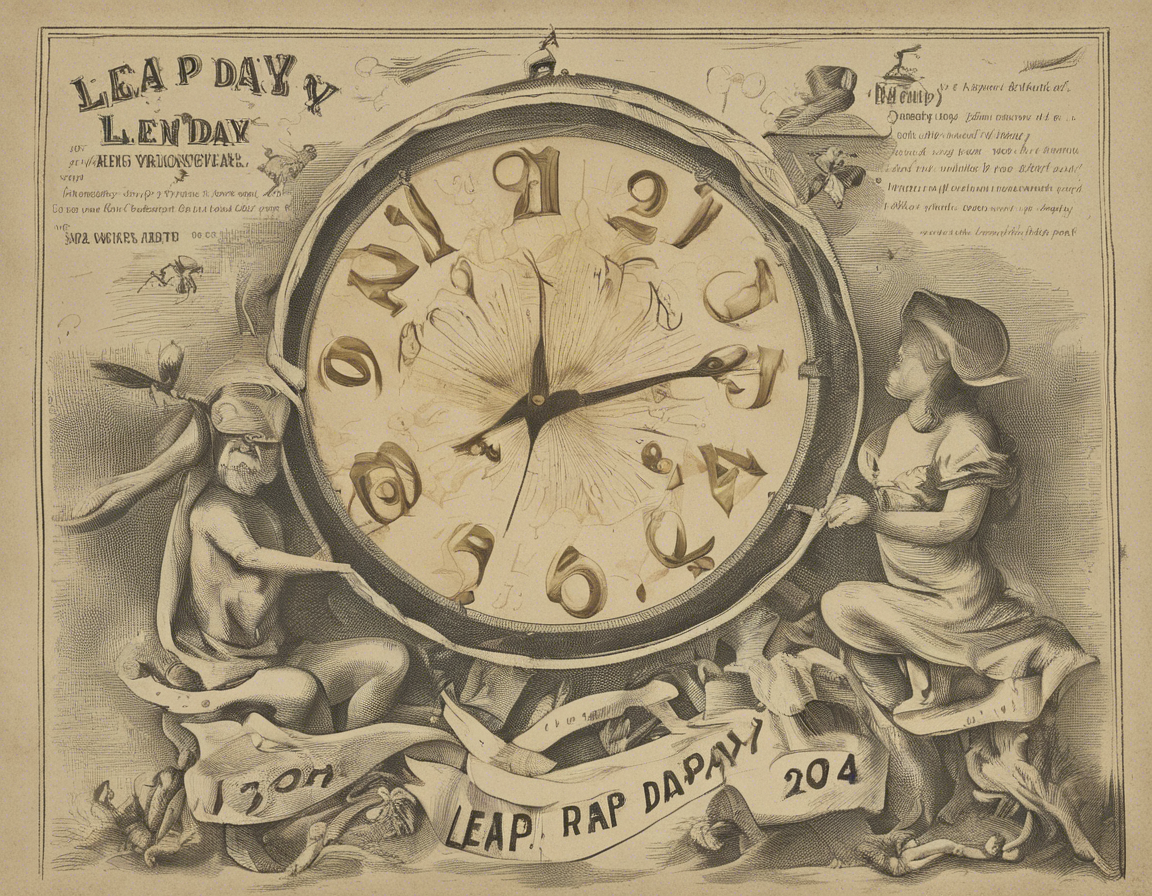
As we approach Leap Day 2024, a date that only occurs once every four years, it’s fascinating to delve into the symbolism and significance of this rare occurrence. Leap Day, also known as February 29th, is added to the calendar during leap years as a corrective measure to ensure that the Gregorian calendar remains in alignment with the Earth’s revolutions around the sun. This extra day holds a special place in many cultures, traditions, and even in folklore. Let’s unpack the symbolism of Leap Day 2024 and explore its meanings across various contexts.
The Mathematics Behind Leap Day:
- Leap years are crucial to accounting for the fact that it takes the Earth approximately 365.2422 days to orbit the sun, not precisely 365 days.
- By adding an extra day every four years, we bring the calendar year more in line with the solar year.
Scientific Significance of Leap Day:
- Leap Day offers a unique opportunity to understand and appreciate the complexity of the Earth’s orbit and the mechanics of our calendar system.
- It highlights the need for precision in measuring time and the careful balance required to synchronize human-made systems with natural phenomena.
Symbolism in Different Cultures:
- In Irish and Scottish tradition, Leap Day is the one day every four years when a woman is encouraged to propose marriage to a man, challenging traditional gender roles.
Leap Day Babies:
- People born on Leap Day, known as leaplings, celebrate their birthdays either on February 28th or March 1st in non-leap years.
- For leaplings, Leap Day holds a unique significance, marking their entrance into the world on a day that occurs infrequently.
Folklore and Superstitions:
- In some cultures, Leap Day is associated with supernatural events or activities outside of the ordinary.
- Superstitions warn against making major life changes or decisions on Leap Day, as it is considered unlucky in some traditions.
Leap Year Proposals:
- The tradition of women proposing marriage on Leap Day dates back to the 5th century in Ireland, when St. Bridget supposedly struck a deal with St. Patrick to allow women to propose on this special day.
- This tradition gives a playful twist to gender norms and empowers women to take the lead in matters of the heart.
Reflection and Renewal:
- Leap Day 2024 offers a moment for reflection, renewal, and taking bold leaps in our own lives.
- It serves as a reminder to seize opportunities, embrace change, and make the most of the precious gift of time we are given.
FAQs about Leap Day 2024:
1. Why do we have a Leap Day?
Leap Day is added to the calendar every four years to account for the extra approximately 0.2422 days it takes the Earth to orbit the sun each year.
2. What is the origin of Leap Day proposals?
The tradition of women proposing marriage on Leap Day has roots in Irish folklore, with St. Bridget and St. Patrick said to have initiated the custom in the 5th century.
3. Do all cultures celebrate Leap Day?
While Leap Day is recognized in many cultures, the traditions and significance attached to it can vary widely across different countries and regions.
4. How do leaplings celebrate their birthdays?
Leaplings born on February 29th celebrate their birthdays on either February 28th or March 1st in non-leap years, often with special festivities or gatherings.
5. Are there any superstitions associated with Leap Day?
In some traditions, Leap Day is considered unlucky for making significant life decisions or changes, while in others, it is seen as a time of supernatural occurrences.
As we anticipate the arrival of Leap Day 2024, let’s embrace the symbolism and significance of this rare occurrence. Whether it’s a day for reflection, a celebration of uniqueness, or an opportunity for bold gestures, Leap Day invites us to appreciate the intricacies of time, tradition, and the mysteries that surround us.
